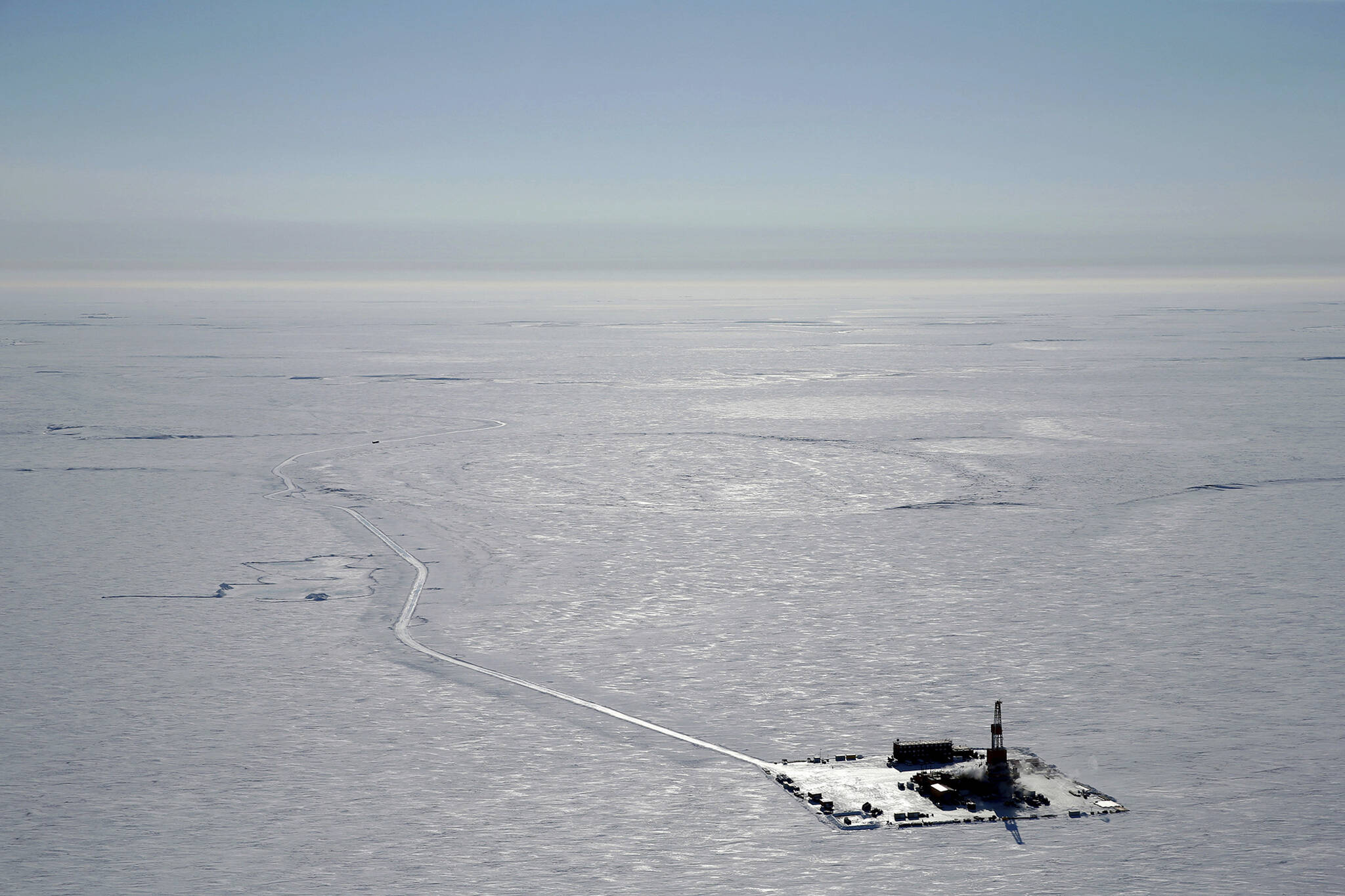Alaska’s push to become a bigger player in the clean energy market is in the spotlight this week at a conference convened by its Republican governor, even as the state continues to embrace new fossil fuel production, including the controversial Willow oil project on the petroleum-rich North Slope.
Gov. Mike Dunleavy successfully pushed through the legislature a bill he is expected to sign Tuesday that would allow the oil-reliant state to cash in on the sale of so-called carbon credits to companies looking to offset their carbon emissions. Projects could include credits for improving a forest’s health through thinning or by allowing trees to grow bigger, thereby increasing a forest’s potential to hold carbon.
Lawmakers cast the bill as allowing Alaska to have the best of both worlds — continuing to permit oil drilling, mining and timber activities while also stepping into the potentially lucrative market for sequestering carbon dioxide. But some watching Alaska’s foray into this sector wonder if the program will gain traction as Dunleavy and lawmakers have said the aim isn’t restricting emissions but generating a new revenue stream.
“There’s kind of a field of dreams quality to this issue. ‘If you plant the trees and create credits, will anyone buy them?’” said Barry Rabe, a political scientist who studies environmental and climate politics at the University of Michigan’s Gerald Ford School of Public Policy.
“What’s just not clear is what that market would look like and whether or not purchasers … will find that an attractive investment,” he said. “That’s the leap of faith.”
Alaska has no carbon emissions reductions goals or overarching climate plan and relies heavily on oil production. It is also experiencing first-hand the impacts of the changing climate, such as coastal erosion threatening Indigenous villages, unusual wildfires and thinning sea ice.
The Willow project being developed by ConocoPhillips Alaska is the latest to draw international attention to the state’s oil reserves. The project approved by the Biden administration earlier this year could produce up to 180,000 barrels of oil a day. It is being challenged in court by environmentalists who argue the U.S. should be moving away from new drilling in the face of climate change.
Republican Sen. Shelley Hughes said she was not fond of the carbon credit concept but was concerned that without embracing it, the state could face backlash from groups over its support for resource development projects, including its backing of Willow.
“I think that in order to get capital investment into our state, we are going to have to be perceived in a way that is trying to work through all of this,” she said during the recent legislative debate.
The bill that passed last week was one of two proposed by Dunleavy as a way to generate a new form of income for the state, which has struggled with deficits for much of the last decade. It would allow the state to set up carbon sequestration projects on forestland and sell credits to companies seeking to offset their emissions, with 20% of the revenue from such sales going to a state fund that supports renewable energy projects.
The bill also would let the state lease lands to third parties that want to manage sequestration projects of their own, such as reforesting areas burned by wildfire or growing kelp.
It could be several years before the first credit sales occur because of the time it will take to set up a program and develop or vet projects.
Another Dunleavy proposal that would have set up a regulatory system allowing for underground storage of carbon dioxide did not advance this session but remains in play for next year’s legislative session.
Dunleavy, meanwhile, is expected to tout the newly passed credit offset plan at the Alaska Sustainable Energy Conference in Anchorage this week. The governor created the conference in part “to show the world what Alaska has to offer,” spokesperson Grant Robinson said.
Some Republican lawmakers said the measure will allow Alaska to capitalize on the demand for carbon emissions offsets from companies already doing business in Alaska that might otherwise purchase carbon credits elsewhere.
“So if they’re going to do it anyways and they’re going to operate (on) Alaskan lands, then why shouldn’t we provide the service of carbon offsets to these companies?” Republican Rep. Kevin McCabe said. “At least then it stays in Alaska and we get some benefit to our state treasury for it.”

